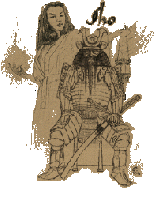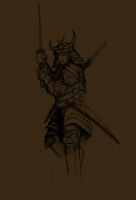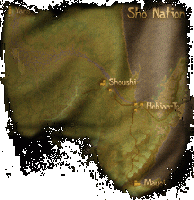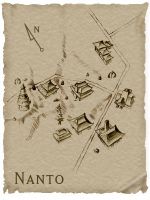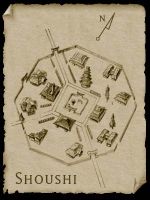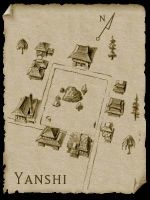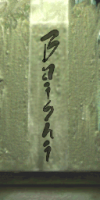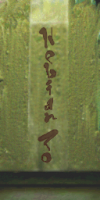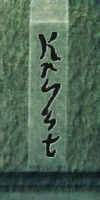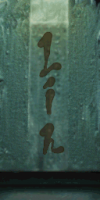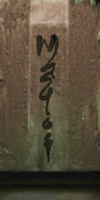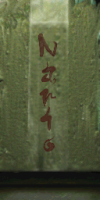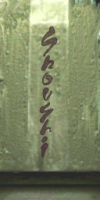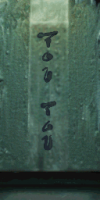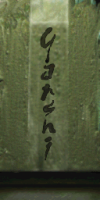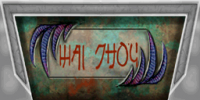Sho: Difference between revisions
imported>An Adventurer m (→Items) |
imported>An Adventurer No edit summary |
||
| Line 2: | Line 2: | ||
== History == | == History == | ||
<ref name=ZogblasterShoIntro>1999/11 [[Release]] - [[Zogblaster.com - Sho Introduction]]</ref> | |||
<ref name=EmpressKou-an>2001/11 [[Dark Majesty]] - [[AC:DM CD Lore/Ispar Texts/Sho Heritage/The Glorious Reign of Empress Kou-an|The Glorious Reign of Empress Kou-an]]</ref> | |||
=== Royalty and Rulers === | === Royalty and Rulers === | ||
| Line 7: | Line 10: | ||
! Name || Bloodline || Rank/Title || Years of reign | ! Name || Bloodline || Rank/Title || Years of reign | ||
|- | |- | ||
| [[ | | [[Shou-Jen Rian]] || ?? || ?? || ?? | ||
|- | |||
| [[Kou]]<ref name=ZogblasterShoIntro/> || ?? || Emperor<ref name=ZogblasterShoIntro/> || ''1086 RC'' - ??<ref name=ZogblasterShoIntro/> | |||
|- | |||
| [[Kou-an]]<ref name=EmpressKou-an/> || Granddaughter of Kou<ref name=EmpressKou-an/> || Empress<ref name=EmpressKou-an/> || ''1176 RC'' - ??<ref name=EmpressKou-an/> | |||
|} | |} | ||
== Culture == | == Culture == | ||
| Line 16: | Line 22: | ||
=== Customs and Traditions === | === Customs and Traditions === | ||
=== Real World Basis === | |||
The Sho culture is based on East Asian cultures, in particular the cultures of [http://en.wikipedia.org/wiki/Culture_of_Japan Japan] and [http://en.wikipedia.org/wiki/Culture_of_China China]. | |||
Numerous names for Sho places and items are Japanese or Chinese. The word [[Ono]] is Japanese for "axe".<ref>[http://en.wikipedia.org/wiki/Ono_(weapon) Wikipedia - Ono (weapon)]</ref> The word Yoroi comes from Ō-Yoroi, Japanese for "great armor".<ref>[http://en.wikipedia.org/wiki/O-yoroi Wikipedia - O-yoroi]</ref> The name of the forest town of [[Lin]] most likely comes from the Chinese name Lin, meaning "forest".<ref>[http://www.behindthename.com/nmc/chi.php Behind the Name: Chinese Names]</ref> | |||
The Sho naming system of having the surname first and the given name last is based on the naming traditions of China,<ref>[http://en.wikipedia.org/wiki/Chinese_name Wikipedia - Chinese name]</ref> Japan,<ref>[http://en.wikipedia.org/wiki/Japanese_name Wikipedia - Japanese name]</ref> Korea,<ref>[http://en.wikipedia.org/wiki/Korean_name Wikipedia - Korean name]</ref> and Vietnam.<ref>[http://en.wikipedia.org/wiki/Vietnamese_name Wikipedia - Vietnamese name]</ref> | |||
The Four Stones of Jojii are most likely based on the [http://en.wikipedia.org/wiki/Taoism Taoist] [http://en.wikipedia.org/wiki/Three_Treasures_%28Taoism%29 Three Jewels], which could be interpreted as compassion, humility, and frugality or simplicity. The four stones of Jojii change frugality or simplicity to detachment from worldly things, and add the fourth stone of discipline. | |||
The four houses of the [[Tanada Clan of Nanjou Shou-Jen]], Air, Earth, Water, and Fire, correspond to four of the [http://en.wikipedia.org/wiki/Five_elements_%28Japanese_philosophy%29 five elements of Japanese philosophy] and the [http://en.wikipedia.org/wiki/Mah%C4%81bh%C5%ABta four great elements of Buddhism]. | |||
== Texts == | == Texts == | ||
Revision as of 14:37, 31 December 2009
| |||||||||||||||
History
Royalty and Rulers
| Name | Bloodline | Rank/Title | Years of reign |
|---|---|---|---|
| Shou-Jen Rian | ?? | ?? | ?? |
| Kou[1] | ?? | Emperor[1] | 1086 RC - ??[1] |
| Kou-an[2] | Granddaughter of Kou[2] | Empress[2] | 1176 RC - ??[2] |
Culture
Religions and Beliefs
Customs and Traditions
Real World Basis
The Sho culture is based on East Asian cultures, in particular the cultures of Japan and China.
Numerous names for Sho places and items are Japanese or Chinese. The word Ono is Japanese for "axe".[3] The word Yoroi comes from Ō-Yoroi, Japanese for "great armor".[4] The name of the forest town of Lin most likely comes from the Chinese name Lin, meaning "forest".[5]
The Sho naming system of having the surname first and the given name last is based on the naming traditions of China,[6] Japan,[7] Korea,[8] and Vietnam.[9]
The Four Stones of Jojii are most likely based on the Taoist Three Jewels, which could be interpreted as compassion, humility, and frugality or simplicity. The four stones of Jojii change frugality or simplicity to detachment from worldly things, and add the fourth stone of discipline.
The four houses of the Tanada Clan of Nanjou Shou-Jen, Air, Earth, Water, and Fire, correspond to four of the five elements of Japanese philosophy and the four great elements of Buddhism.
Texts
![]() Firebird's Splendor (Text)
Firebird's Splendor (Text)![]() Jojii Zhen Gai Comments on the Teachings of Jojii
Jojii Zhen Gai Comments on the Teachings of Jojii![]() Ken-Gou and the Curse of Attachment
Ken-Gou and the Curse of Attachment![]() Letter From Home (Sho)
Letter From Home (Sho)![]() Loka Jii Learns to Hunt
Loka Jii Learns to Hunt![]() On the Four Stones and Three Elders
On the Four Stones and Three Elders![]() Reflections of a Portal
Reflections of a Portal![]() Scrawled Note (Jojii)
Scrawled Note (Jojii)![]() Stone of the Firebird (Text)
Stone of the Firebird (Text)![]() The Collected Writings of Jhong Mi
The Collected Writings of Jhong Mi![]() The Emperor's Blade
The Emperor's Blade![]() The Journal of Nandesu Ka
The Journal of Nandesu Ka![]() The Rise and Fall of the Tanada
The Rise and Fall of the Tanada![]() The Story of Ben Ten and Yanshi
The Story of Ben Ten and Yanshi![]() The Story of Koji and the Dragon of Power
The Story of Koji and the Dragon of Power![]() The Story of Koji's Sword
The Story of Koji's Sword![]() Unicorn's Grace (Text)
Unicorn's Grace (Text)
Internet Articles
- Zogblaster.com - Sho Introduction
- Zogblaster.com - Sho Factions
- Zogblaster.com - The Story of Ben Ten and Yanshi
- Zogblaster.com - The Story of Ken-Gou
- AC:DM CD Lore - Sho Heritage
Factions
- Ryu Jou Gai - Order of the Dragon Temple
- Chiran Jou Gai - Order of the Unicorn Temple
- Chiran Jishui Dan - The Ranks of the Unicorn’s Battle
- Washui Iiwah Jou Gai - Order of the Splendor of the Firebird Temple.
- Jojii Zhen Gai - Order of Jojii.
- Nanjou Shou-Jen - Sons of Shou-Jen. Also called the "Order of the Shadows."
Items
![]() Ogre Mask
Ogre Mask![]() Koji's Beast
Koji's Beast![]() Koji's Fiend
Koji's Fiend![]() Koji's Visage
Koji's Visage![]() The Dragon of Power
The Dragon of Power
![]() Feathered Razor
Feathered Razor![]() Fist of Enlightenment
Fist of Enlightenment![]() Green Mire Yari
Green Mire Yari![]() Jitte of Law
Jitte of Law![]() Mi Krau-Li's Jitte
Mi Krau-Li's Jitte![]() Mi Krau-Li's Improved Jitte
Mi Krau-Li's Improved Jitte![]() Mi Krau-Li's Remastered Jitte
Mi Krau-Li's Remastered Jitte![]() Moriharu's Kitchen Knife
Moriharu's Kitchen Knife![]() Orb of Splendor
Orb of Splendor![]() Pillar of Fearlessness
Pillar of Fearlessness![]() Serpent's Flight
Serpent's Flight![]() Sword of Soroku
Sword of Soroku![]() Tachi of Grace
Tachi of Grace
![]() Breastplate of Grace
Breastplate of Grace![]() Breastplate of Power
Breastplate of Power![]() Breastplate of Splendor
Breastplate of Splendor![]() Greater Koujia Shadow Breastplate
Greater Koujia Shadow Breastplate![]() Greater Koujia Shadow Leggings
Greater Koujia Shadow Leggings![]() Greater Koujia Shadow Sleeves
Greater Koujia Shadow Sleeves![]() Green Mire Yoroi Cuirass
Green Mire Yoroi Cuirass![]() Nexus Koujia Breastplate
Nexus Koujia Breastplate![]() Nexus Koujia Leggings
Nexus Koujia Leggings![]() Nexus Koujia Sleeves
Nexus Koujia Sleeves![]() Prismatic Koujia Breastplate
Prismatic Koujia Breastplate![]() Prismatic Koujia Leggings
Prismatic Koujia Leggings![]() Prismatic Koujia Sleeves
Prismatic Koujia Sleeves![]() Shield of Power
Shield of Power![]() Shield of Truth
Shield of Truth![]() Shield of Yanshi
Shield of Yanshi![]() Shou-jen Jika-Tabi
Shou-jen Jika-Tabi![]() Shou-jen Shozoku Jacket
Shou-jen Shozoku Jacket![]() Shou-jen Shozoku Mask
Shou-jen Shozoku Mask![]() Shou-jen Shozoku Sleeve Gauntlets
Shou-jen Shozoku Sleeve Gauntlets![]() Shou-jen Shozoku Trousers
Shou-jen Shozoku Trousers![]() Sollerets of Grace
Sollerets of Grace
![]() Channeled Tanada Medallion
Channeled Tanada Medallion![]() Dansha-Ki's Gem of Portal Recall
Dansha-Ki's Gem of Portal Recall![]() Dansha-Ki's Ring
Dansha-Ki's Ring![]() Gem of Balance
Gem of Balance![]() Miyako's Moonstone
Miyako's Moonstone
![]() Bending Willow and Setting Sun
Bending Willow and Setting Sun![]() Falling Leaves
Falling Leaves![]() Fat Vase
Fat Vase![]() Font of Jojii
Font of Jojii![]() Jade Shrine
Jade Shrine![]() Screen
Screen![]() Sho Festival Light
Sho Festival Light![]() Sho Floor Pillow
Sho Floor Pillow![]() Sho Lantern
Sho Lantern
![]() Brazier of Power
Brazier of Power![]() Crystals of Grace
Crystals of Grace![]() Enlightened Master's Medallion
Enlightened Master's Medallion![]() Golden Shuriken of Tanada
Golden Shuriken of Tanada![]() Grace and Power
Grace and Power![]() Jade Medallion of the Depths
Jade Medallion of the Depths![]() Jojii Shrine
Jojii Shrine![]() Medallion of Breath
Medallion of Breath![]() Medallion of Earth
Medallion of Earth![]() Medallion of Metal
Medallion of Metal![]() Medallion of Stone
Medallion of Stone![]() Medallion of Storms
Medallion of Storms![]() Medallion of the Sword
Medallion of the Sword![]() Medallion of Wind
Medallion of Wind![]() Power, Grace and Splendor
Power, Grace and Splendor![]() Pure Water
Pure Water![]() Rock of Splendor
Rock of Splendor![]() Scroll of Air
Scroll of Air![]() Scroll of Earth
Scroll of Earth![]() Scroll of Water
Scroll of Water![]() Stone of Compassion
Stone of Compassion![]() Stone of Humility
Stone of Humility![]() Stone of Discipline
Stone of Discipline![]() Stone of Detachment
Stone of Detachment![]() Tanada Clan Master's Medallion
Tanada Clan Master's Medallion![]() Tanada Gate Medallion
Tanada Gate Medallion
Art & Images
References
- ↑ 1.0 1.1 1.2 1.3 1999/11 Release - Zogblaster.com - Sho Introduction
- ↑ 2.0 2.1 2.2 2.3 2.4 2001/11 Dark Majesty - The Glorious Reign of Empress Kou-an
- ↑ Wikipedia - Ono (weapon)
- ↑ Wikipedia - O-yoroi
- ↑ Behind the Name: Chinese Names
- ↑ Wikipedia - Chinese name
- ↑ Wikipedia - Japanese name
- ↑ Wikipedia - Korean name
- ↑ Wikipedia - Vietnamese name
